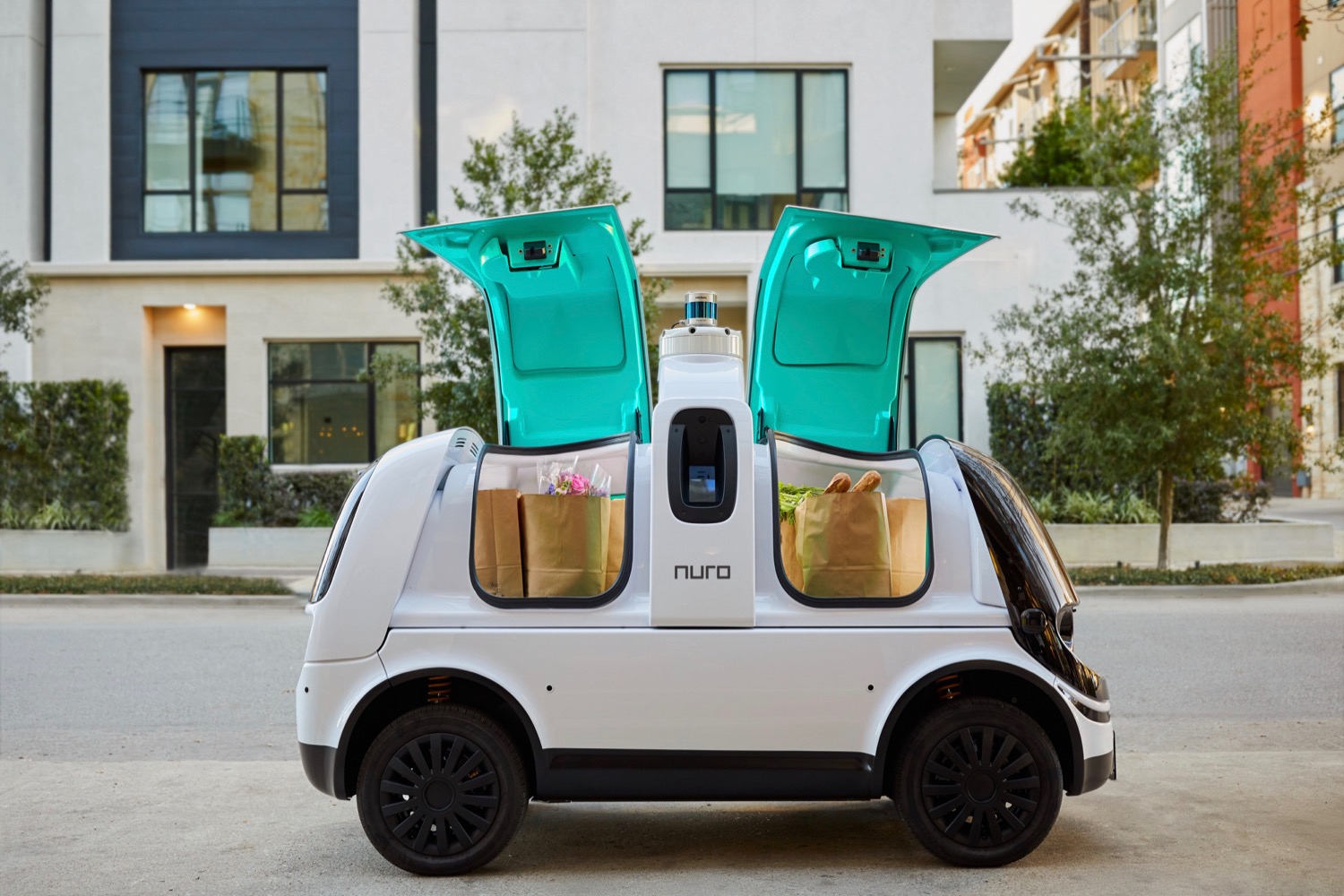
Nuro — a startup that uses small autonomous vehicles to deliver groceries — has achieved an important milestone in the development of self-driving cars. The startup’s latest vehicle — the R2 — has been granted an exemption from federal safety regulations designed with human-driven vehicles in mind. In a blog post, Nuro said it was the first company to be granted such an exemption.
The exemption means Nuro is now able to produce and operate vehicles not intended for human drivers. Any company producing a vehicle for use on public roads needs to comply with Federal Motor Vehicle Safety Standards (FMVSS). But these rules were written for cars driven by humans, so they require, among other things, that cars have steering wheels and pedals. That presents a major roadblock (no pun intended) to any company developing autonomous cars.
Companies whose vehicles don’t comply with FMVSS can apply for an exemption, and the federal government is allowed to grant up to 2,500 exemptions per company per year. To qualify for an exemption, regulators must determine that a vehicle is as safe as one that complies with the letter of the law, David Estrada, Nuro’s chief legal officer, said in an interview with The Verge. The exemption also came with some caveats.
The Nuro R2 will only operate at speeds up to 25 mph, putting it in a category of low-speed vehicles that are generally subject to fewer regulations than traditional cars. The U.S. Department of Transportation will also require Nuro to regularly report information about R2 operations, and reach out to communities where it plans to operate the vehicles, according to The Verge.
Nuro isn’t the only company seeking to operate autonomous vehicles without manual controls. General Motors has submitted a petition for its own exemption. Unlike Nuro, GM wants to operate cars at speeds over 25 mph, which may complicate the approval process. GM is banking on approval, however. The company’s Cruise division recently unveiled the Origin, a self-driving car with no manual controls, and GM has already set aside capacity at a Michigan factory to build it.
Waymo has made some noise in the past about deploying self-driving cars without manual controls, and even operates some cars without human drivers behind the wheel, but has not applied for an FMVSS exemption. Scania and Einride have both demonstrated large commercial trucks without operator cabs, but these vehicles will likely operate at enclosed terminals or construction sites for the time being.
The FMVSS exemption allows more freedom to optimize the design of the R2 for urban grocery deliveries, according to Nuro. Instead of a windshield, the vehicle has a special energy-absorbing panel designed to protect pedestrians. Similar to the previous R1 (which will be retired), the R2 has a smaller footprint than a normal car, but the lack of a driver’s seat leave plenty of room for cargo. Nuro started delivering groceries in Scottsdale, Arizona, in December 2018, before shifting to Houston. The company also uses modified Toyota Priuses for deliveries.


